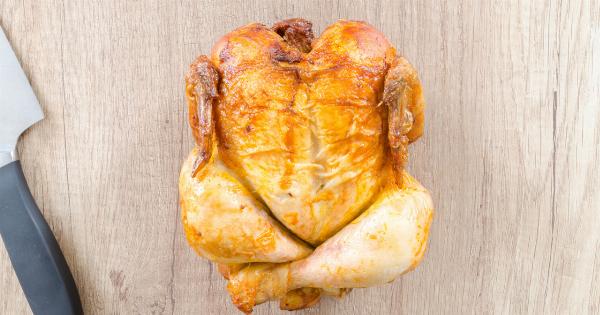Easter is a time for gathering with loved ones and indulging in a delicious feast. However, the abundance of rich, heavy foods can often leave you feeling uncomfortable and bloated.
To help you enjoy your Easter dinner without the discomfort, we’ve put together some tips and tricks to beat the burn and keep your tummy happy.
1. Plan a Well-Balanced Menu
When crafting your Easter dinner menu, make sure to include a variety of dishes that are both flavorful and light. Incorporate plenty of fresh vegetables, lean proteins, and whole grains to promote digestion and prevent heaviness.
2. Opt for Healthy Cooking Methods
The way you prepare your Easter dishes can make a big difference in how they sit in your stomach. Choose healthier cooking methods such as baking, grilling, or steaming instead of frying or deep-frying.
This will help reduce the amount of added fats and oils, making your meal easier to digest.
3. Use Digestive Spices
Certain spices can aid in digestion and alleviate discomfort after a heavy meal. Incorporate digestive spices like ginger, turmeric, cumin, and fennel in your Easter dishes.
These spices can help reduce bloating, gas, and indigestion, allowing you to enjoy your meal without any unpleasant after-effects.
4. Stay Hydrated
Drinking enough water is crucial for good digestion. Keep a glass of water by your side during your Easter dinner and make sure to stay hydrated throughout the day.
Proper hydration helps your body break down food and prevents constipation, leaving you feeling lighter and more comfortable.
5. Slow Down and Chew Thoroughly
Take your time to savor each bite and chew your food thoroughly. Eating slowly allows your body to properly digest the food, reducing the chances of bloating and indigestion.
It also gives your brain time to register when you’re full, preventing overeating.
6. Practice Portion Control
While it is tempting to load up your plate with a little bit of everything, practicing portion control is key to avoiding digestive discomfort. Serve yourself small portions and listen to your body’s cues of fullness.
Remember, you can always go back for more if you’re still hungry.
7. Take a Walk
After your Easter dinner, take a leisurely walk to aid digestion. Moving your body helps stimulate the digestive system and prevent bloating.
It also provides an opportunity for some quality family time and can be a refreshing break after indulging in a scrumptious meal.
8. Limit Alcohol Consumption
Alcohol can contribute to digestive issues and dehydration. If you choose to have a drink, opt for lighter options like wine or champagne and drink in moderation.
Avoid carbonated beverages and sugary cocktails, as they can worsen bloating and discomfort.
9. Enjoy Light Desserts
Instead of heavy, rich desserts, opt for lighter options that won’t leave you feeling weighed down. Fresh fruit salad, sorbets, or a light angel food cake are great alternatives to traditional heavy sweets.
These desserts still satisfy your sweet tooth without adding extra heaviness to your meal.
10. Be Mindful of Food Combinations
Some food combinations can be harder on your digestive system than others. Avoid pairing foods that are difficult to digest together, such as proteins and starchy foods.
Instead, try to balance your meal with a good mix of proteins, vegetables, and grains to support healthy digestion.





























